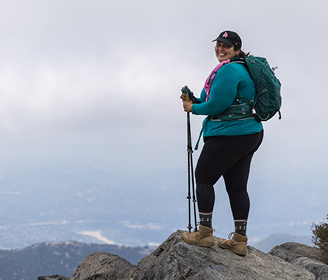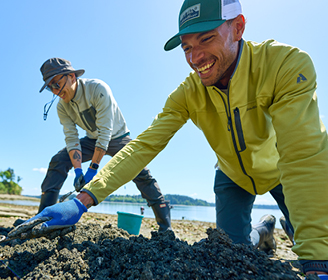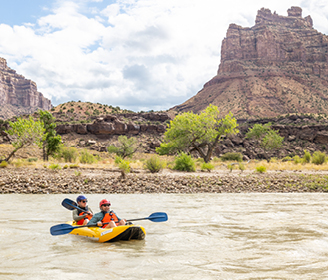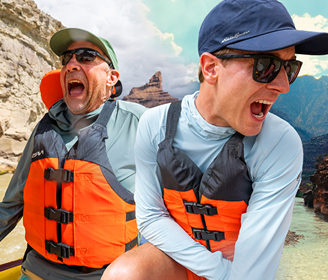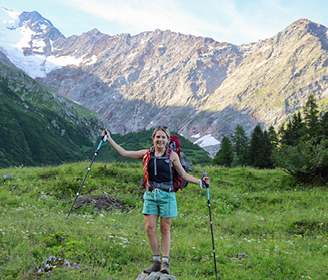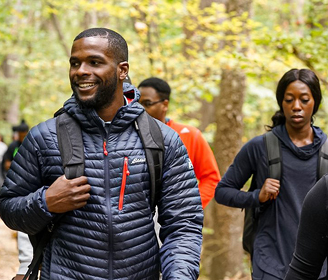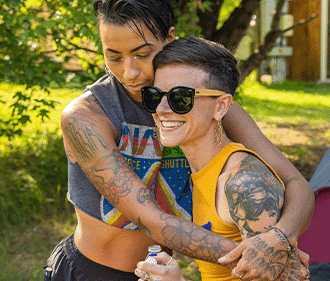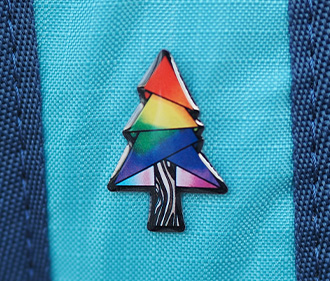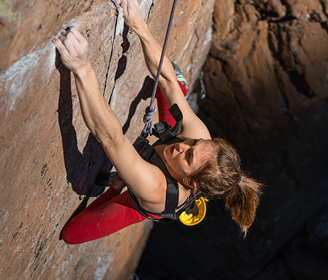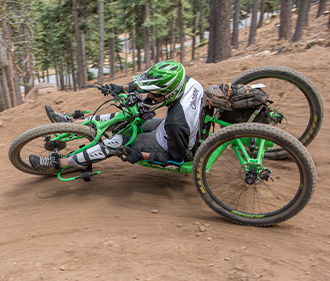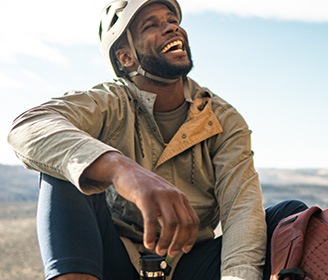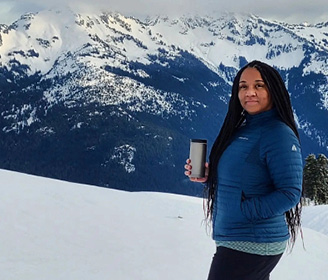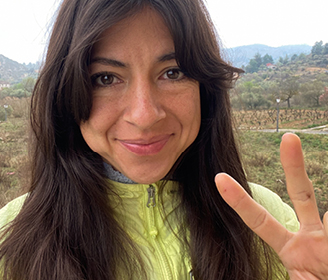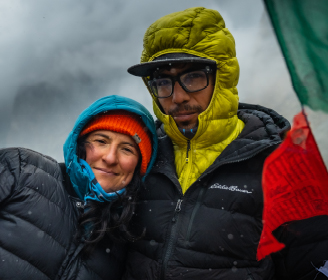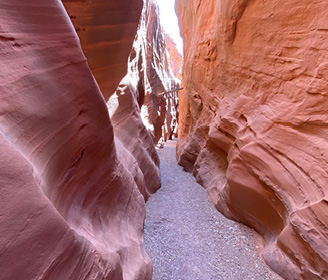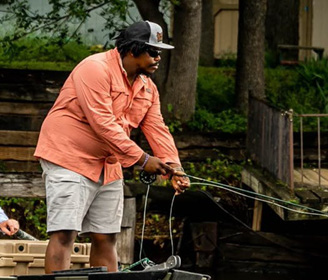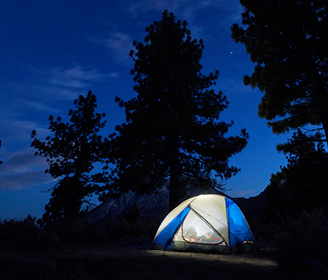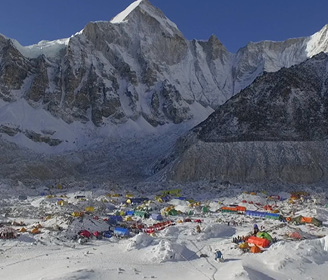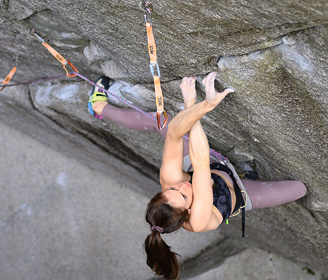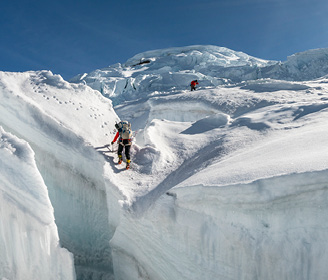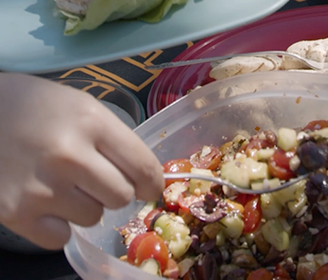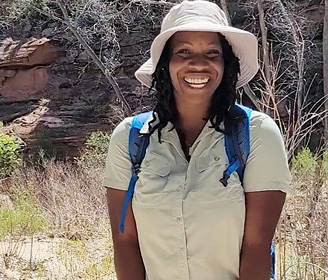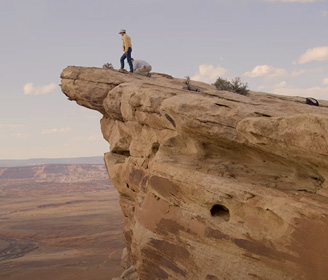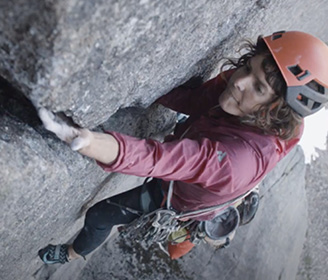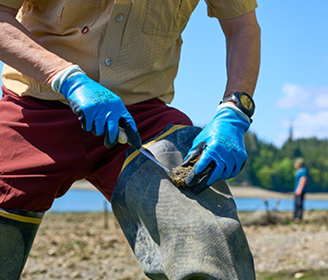In the last six months, I’ve been on a spree of trying new outdoor activities, including fly-fishing, skiing, and outdoor rock climbing. I used to be so afraid of being “bad” at anything or drawing attention to myself while doing physical activities in public. It’s taken a lot of hard work, but I’d rather be brave enough to suck than to miss out on anything I want to do.
We need to see more representation of people trying new things and sucking at them, though there are valid reasons why we don’t.

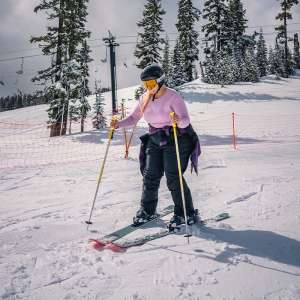
Representation is an invitation. Had I not found other fat adventurers like angler Serene Cusack (@fattyonthefly) and rock climber Sam Ortiz (@samortizphoto), I don’t know if trying these activities would have ever occurred to me. Same with hiking—the very thing I’m known for. I didn’t grow up hiking and most people I knew then didn’t either. This is a common experience for a lot of people, especially those who hold marginalized identities.
People who don’t fit the outdoorsy status quo are given less freedom to suck. We often feel like we have to do better to get any kind of respect because when we suck it reinforces beliefs about who does not belong in these spaces. Someone who is white, cisgender, heterosexual, thin and able-bodied has more freedom to be mediocre. It’s not that they won’t experience shame or shaming for being bad at something, but that shame won’t reinforce their exclusion from outdoor spaces.
I’ve put a lot of work into healing the parts of myself that used to shame spiral if something was harder for me, and it gives me more freedom to try more new things to suck at. Sometimes, the fear of shame itself could keep me from trying something new. There are a lot of toxic belief systems about how we define ability that stem from diet culture and ableism. Diet culture, in short, thrives on the belief that thinness defines health and health is the yardstick of our individual worth and morality. Ableism, in the shortest of short, is the centering and privileging of physical ability.
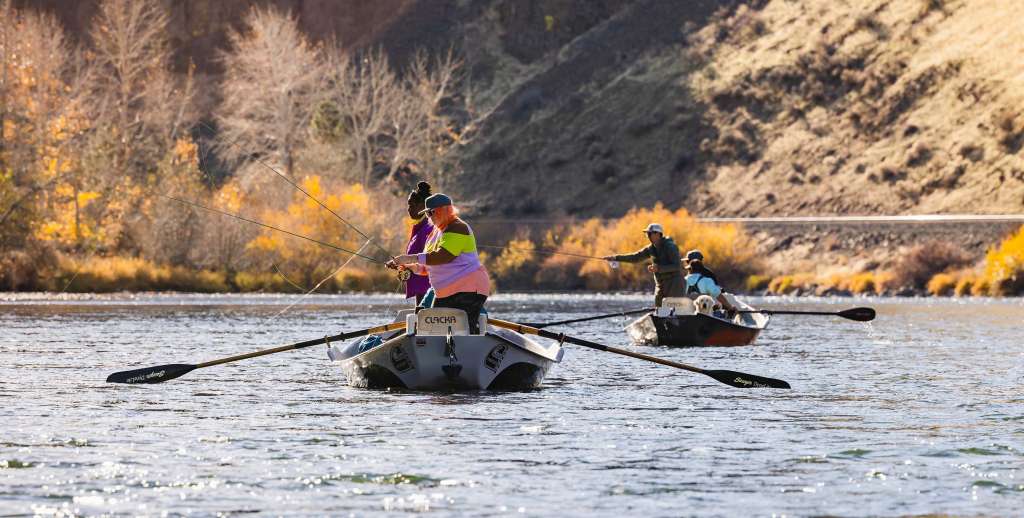
Being “bad” at something isn’t the same as not being able to do it. If we dig into that just a little, how much of what we think of as being “good” is really about perceived “natural” ability, body type, and how a person looks while doing a thing? Being bad at something doesn’t mean it isn’t for me. The way I do something doesn’t have to look the same as the way someone else does it. Expectations of grace and speed, feats of strength and endurance, and the idea that being bad at something is just a short hurdle on the way to greatness don’t have to be a part of my process.
Just in case it needs to be said, it’s ok to straight-up not like something, but ask yourself what parts of you have decided that. It’s also ok to not be able to do something. It doesn’t mean anything at all about who you are. Respecting your personal limits is not only wise, it takes courage and self-love. Not every activity is for us and that’s ok too.
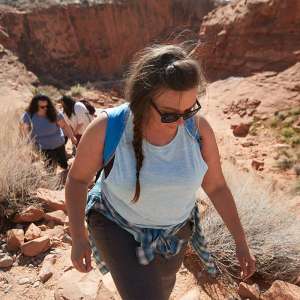
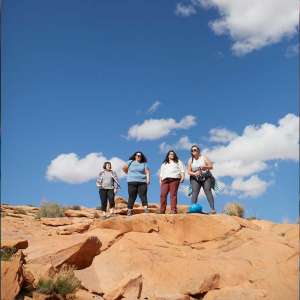
When I first started hiking, I too thought I needed to go faster and harder, climb more mountains, and look more graceful and agile while doing these things, etc. I thought it validated me more as an adventurer. I proudly told people of my accomplishments in hopes that I’d actually be validated, and sometimes I was, but often I wasn’t. So what then? Even now, with all I’ve done, folks will comment on posts or articles about me saying things about how it looks like I’m hiking to McDonald’s, or on trail I’ll get unasked for directions and advice under the assumption that it’s my first time out there.
“Who cares what people think?” “Don’t let other people hold you back” “Ignore the haters” “It’s really sad that you need so much validation.”
When I talk about the harmful comments myself and so many others experience outdoors, these are some of the common reactions. Some mean well, some very clearly do not, and all of these sentiments invalidate our experiences of othering. I’m growing past letting someone else’s projections sour my good time, but it’s still exhausting to shoulder and it’s valid to be angry or feel bad. We absolutely do not have to be above having feelings about it and we didn’t develop them on our own.
If hearing people’s experiences of harm inspires defensiveness in you, I invite you to enthusiastically observe instead of voicing it. Go inward. Where do these feelings come from for you? Is your reaction possibly part of the problem? How might these feelings be reminding you of the shame you’ve felt? Why do you have to have a say?
Go out and do the new hard thing. Be bad at it. Laugh at yourself. Go with people who you feel safe enough to laugh with. And then go do the thing again if you want to. Bring someone else who wants to try it. Post the unflattering photos on social media and dare folks to be brave enough to suck too.
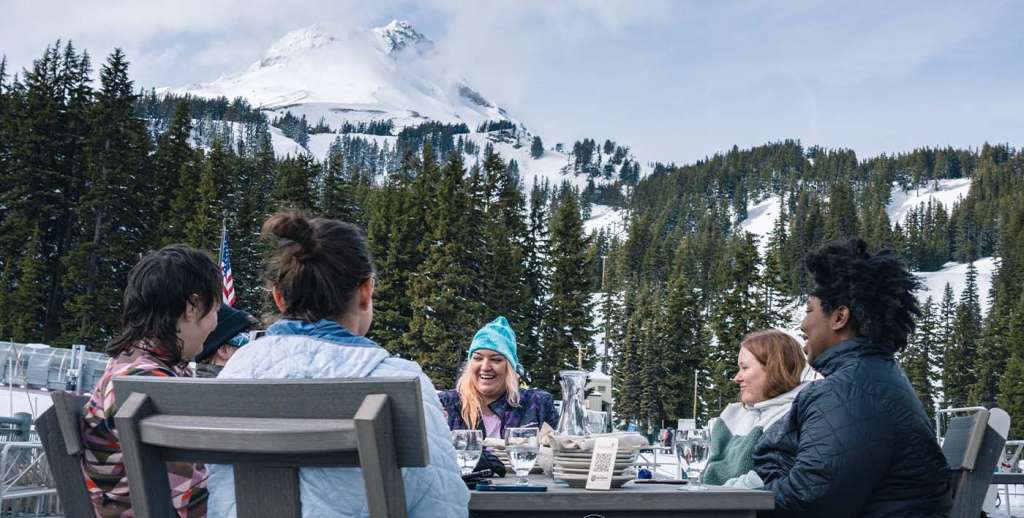
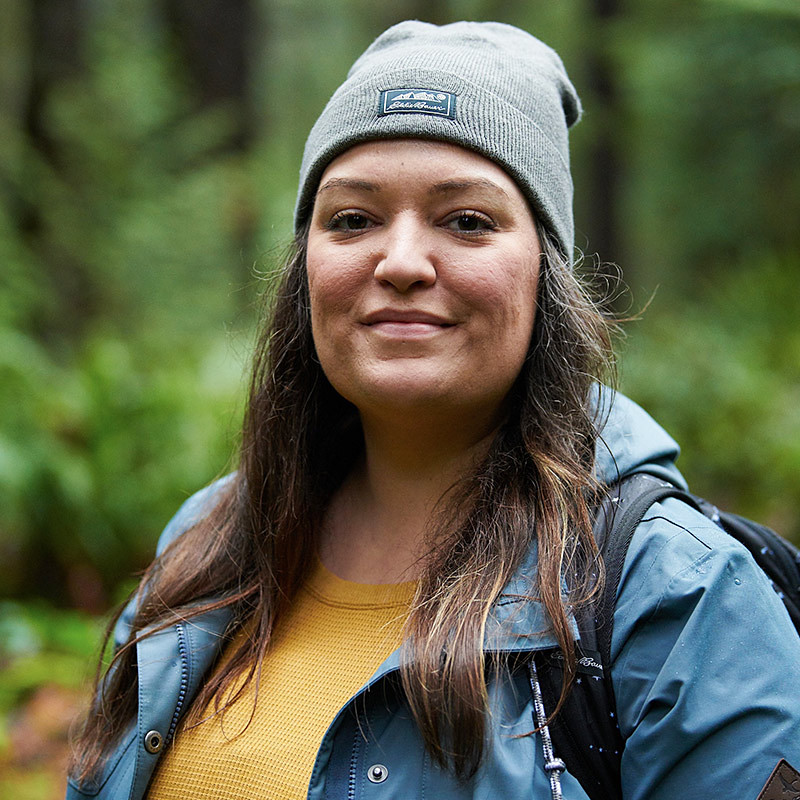
JENNY BRUSO
Eddie Bauer One Outside Guide
Jenny Bruso queer, plus-size, writer, hiker, group hike leader and founder of Unlikely Hikers. A late bloomer to the outdoors, it wasn’t until 2012 that she went on the hike that would change the course of her life from career waitress to outdoor leader and advocate for underrepresented outdoorspeople.


